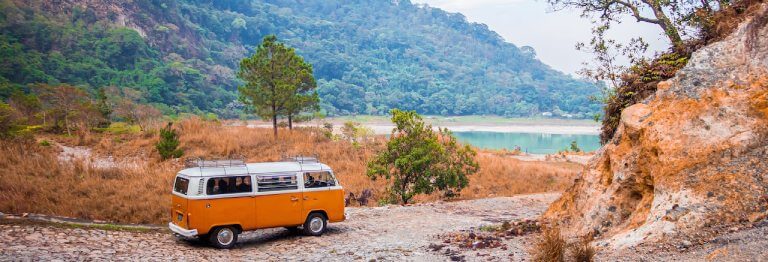

India is an intriguing land that’s full of diverse cultures and colourful traditions. As well as being home to the Taj Mahal – which is one of the New Seven Wonders of the World – India also contains the gloriously unspoilt beaches of Goa and the mighty foothills of the Himalayas, so every inch of this beautiful country has an intriguing story to tell. India is the world’s seventh largest country, and between the 38 UNESCO-listed World Heritage Sites, you’ll never be short of something to see and do. So, pack your rupees and get ready to explore.
India consists of 29 states and has 22 main languages. It’s a brilliantly bustling place that’s packed with character. Due to its diversity, it’s no wonder many people see India as the ideal location for a backpacking holiday. This type of trip is a great way of seeing adrenaline-fuelled cities like Jaipur, the beautiful monuments in the ‘Golden Triangle,’ the deserts of Rajasthan and the palm-fringed western coast.
Plus, visiting India is now simpler and more affordable than ever before, particularly because large cities are linked by faster highways and speedy trains. You can also travel around many cities by metro but, if you’re looking for an authentic way to see the city, you can also catch a rickshaw.
But whatever you choose to do, it's important that you get travel insurance for India to help protect yourself against unforeseen eventualities.
Below is some more information about our products, for which Terms and Conditions apply. Please visit the policy information hub for full details.

Why may I need travel insurance for India?

The best travel insurance policies for India provide you with peace of mind. Although India is largely considered to be a safe place to visit, you’ll still need travel insurance to help cover you whilst you’re away.
For example, while on holiday to India, you need to be careful around food and drink. Although it’s normally considered safe to drink sealed bottled water, you shouldn’t drink tap water or use it to brush your teeth. Drinks containing ice should also be avoided, as should raw foods, including salads. Should you need medical care after falling ill due to a water-borne disease, then your travel insurance can cover you. But, if you don’t have insurance, then the cost of care in India can be expensive, because many major cities have private medical care. What’s more, local hospitals and clinics may only be able to offer basic care, so you might need to travel a long way for treatment.
The best travel insurance for India will also protect you from some of the other risks associated with visiting the country. This includes treatment for mosquito-borne diseases such as dengue fever, or diseases like cholera.
Finally, theft and petty crime are popular in tourist spots. If you’re the victim of a crime while on holiday, travel insurance for your India trip can help to cover these losses and replace your possessions.
What does our travel insurance for India cover?
- *Not available with Bronze level cover
- **Only available with Gold level cover
- Terms and Conditions apply.
Frequently Asked Questions
From 5th May 2021 we will no longer be offering travel insurance policies to cover people’s pre-existing medical conditions. This is only a temporary measure while we make improvements to our online booking engine. Please keep an eye on the Allianz Assistance website in the future so you are aware when we are able to offer this additional cover again. Policies purchased before 5th May 2021 aren’t affected and your cover won’t change.
If you have a pre-existing medical condition, while we may not be able to cover you at the moment, it’s vital that you declare it to your insurance provider when you take out travel insurance for your India trip. This way, you’ll know whether or not they are able to cover you, should anything happen.
According to the National Travel Health Network and Centre (NaTHNaC), when travelling to India, you should be up to date with routine vaccinations such as measles-mumps-rubella (MMR) and the diphtheria-tetanus-polio vaccine. Most travellers visiting India will require vaccinations for hepatitis A, tetanus and typhoid; some travellers may also need vaccinations for cholera, hepatitis B, Japanese Encephalitis (JE), rabies and tuberculosis (TB).
If you’re travelling from a country that has a risk of yellow fever, then you will also require a yellow fever vaccination certificate.
If you need help or support while you’re in India, we can provide 24-hour emergency medical assistance and also a GP telephone and video consultation service. We also have a legal helpline for our policyholders. For contact information, and to find out if any exclusions apply, please consult your policy documents.
If you’re a British citizen and you’re visiting India for holiday purposes, you can apply for an e-visa online. You can choose an e-tourist visa that lasts for 30 days, one year or five years, but continuous stays for each visit cannot exceed 180 days.
If you’re not visiting India as a tourist, then you can also get an e-business visa, an e-conference visa, and e-medical visa or an e-medical attendant visa.
When you’re travelling around India, you need to be aware of regional variations. Over 20 languages are spoken in India and many of the 29 states and seven union territories have their own laws. Before you visit each state, you should research the local laws and ensure you’re aware of the customs of the region. If you’re visiting religious or sacred sites, then you should also make sure you’re dressed respectfully.
If you’re visiting different states, then India has a great train network where you can take in amazing views as you travel. The train system is reliable and affordable, but you should aim to travel in first or second class. Much like you would if you were travelling in the UK, you should remain vigilant while on board and you should take particular care of your valuables. If you’re covering large distances, then India also has a good network of internal flights.
For travel within cities, local buses are incredibly popular. Although you can hire a car, many traffic rules are not observed by locals, which can make driving difficult. As a result, most tourists use public transport instead. Rickshaws and taxis are both popular, but they are prone to scams, so you should not get into them alone. When travelling by rickshaw, you should be particularly vigilant of people trying to steal your valuables.











